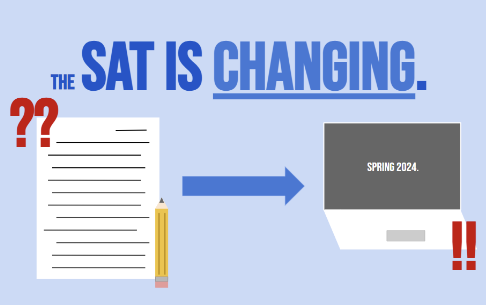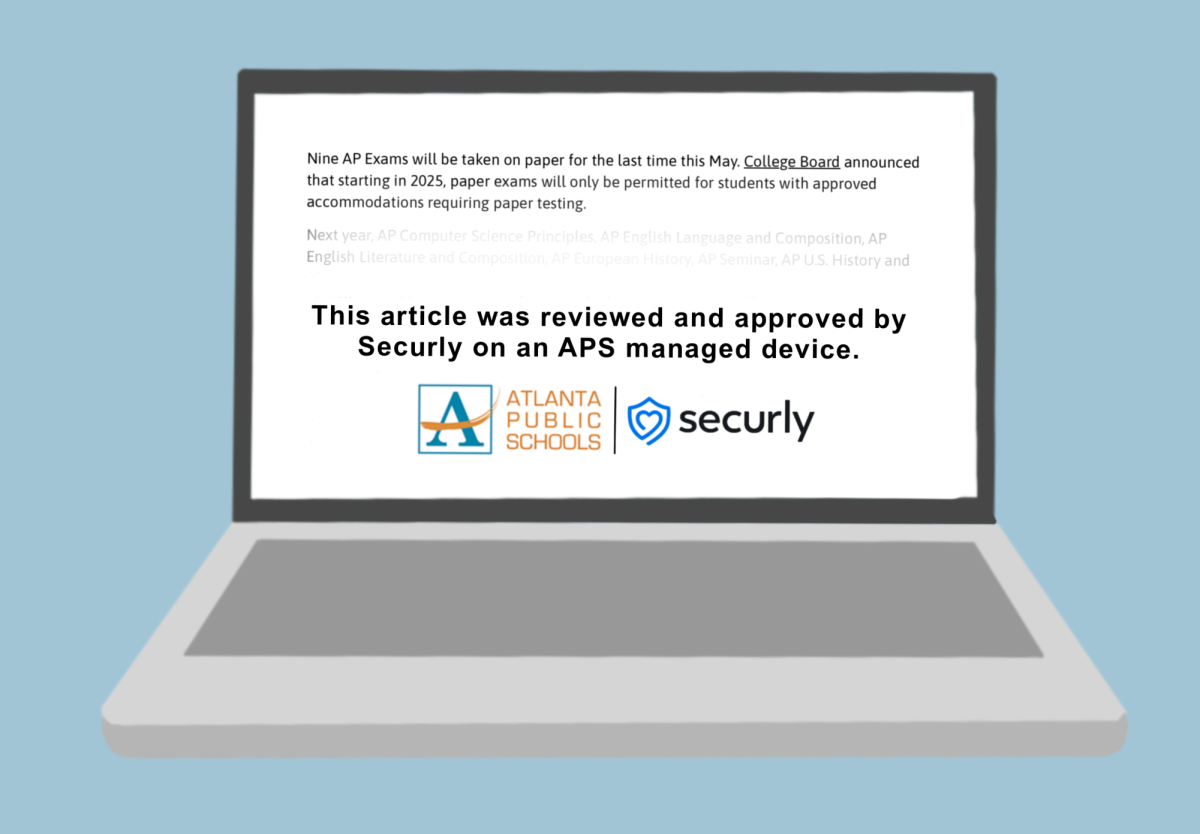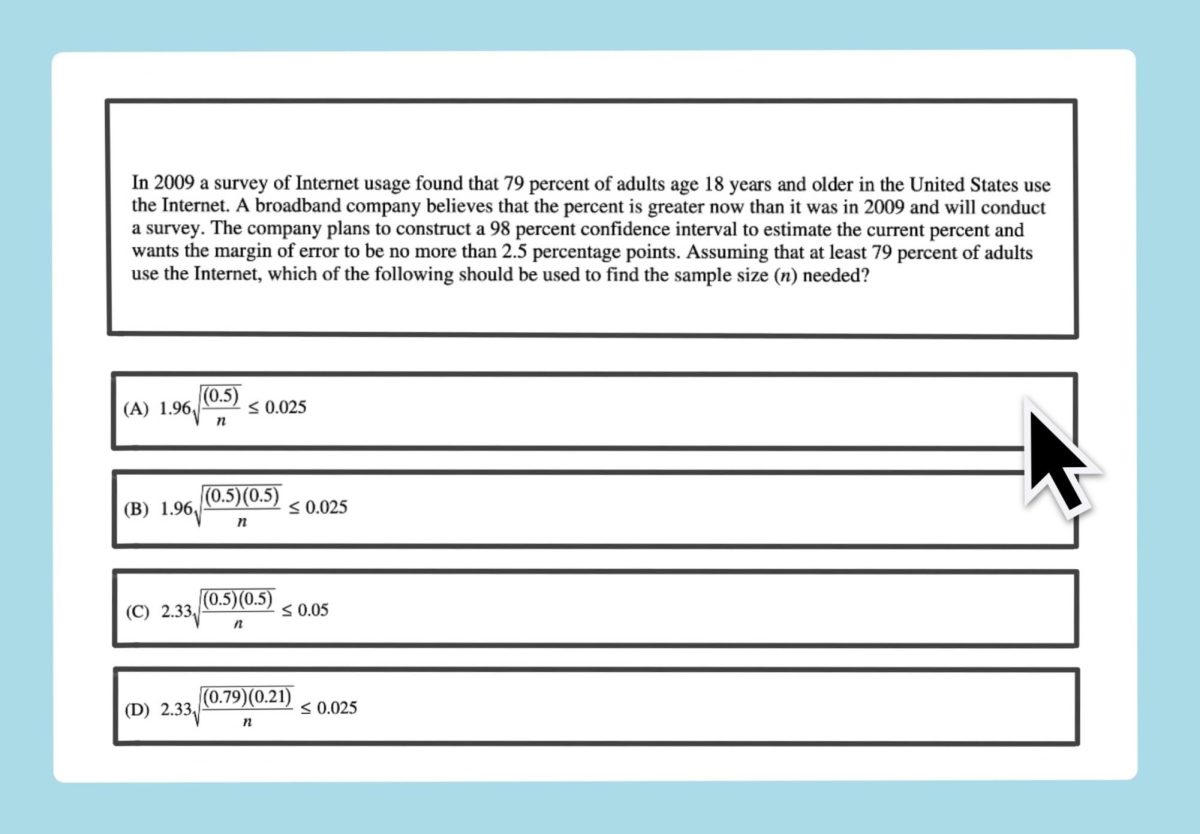The Scholastic Aptitude Test (SAT) will be completely converted to a digital format in Spring 2024, with adaptations including fewer test questions and more time to answer them.
The digital version of the exam has already launched internationally in Spring 2023. The shift is causing concern among students, as it is a big adjustment.
“I think the switch to an online SAT is going to have mixed reviews,” senior Delia Schroeder said. “For me personally, I do not like the switch online as I do better on paper tests. I think [the digital exam] will go faster and be better for people who are not as good test takers.”
It is uncertain how the new SAT will affect students in the spring and beyond.
“It’s definitely a big change,” junior Ava Johnson said. “I’ve already taken the written SAT, so I’ll be able to compare it to the new one. It’ll definitely be a lot to adjust to, but I want to go into it with an open-mind because maybe it could be a really positive thing.”
Under the new digital format, the SAT will continue to be scored out of 1600 but will only have two sections: math and reading/writing. Schroeder believes this change follows the digitalization of the world, and the adjustments towards the test are modern.
“College Board is most likely trying to keep up with the digital age and make the test better for people who are not as strong test takers,” Schroeder said. “They are probably also trying to lessen their workload by having [electronic] grading.”
The test is going to be shortened from around three hours to about two hours, with more time allocated per question.
“Currently, I’m in the process of studying for and taking the SAT to get the score I want in order to apply to colleges,” junior Ward Rentz-Baker said. “As of now, both the SAT and ACT are very lengthy tests, and so, if someone is not as good a test taker, it could be really difficult for them to stay focused that long.”
These changes are not only affecting the format but also the way students prep for the SAT. Silvia Eufinger, an SAT prep teacher at Edison Prep, who helps some Midtown students, is having to adjust their curriculum to better fit the digital version.
“The new format, while it has the same ingredients of reading comprehension, grammar and math, is very different from the current test,” Eufinger said. “We are actively writing a brand new digital curriculum for our students who will begin preparing for the digital March SAT in mid-December or early January.”
Rentz-Baker believes the larger weight for questions under the new format could negatively impact his score.
“I think that for some people it could be a good change, but for me, and I believe a wide majority of people, it’s unwelcome as there’s less opportunity to make mistakes, so on the shorter test now, if you make a mistake you’re punished for it,” Rentz-Baker said.
Along with the shortened test, each examinee will receive a test that has a multistage adaptive design. This means that both test sections are divided into two parts called “modules.” When a student finishes the first module of a section, the second one will have questions dependent on how they performed in the first, allowing the test to accurately measure students’ skills faster.
“I think [the modular format] takes away from the point of having one standardized test for all of the students because I believe the point of the SAT is to make a judgment on where your level of knowledge is based on those subjects,” Rentz-Baker said. “But now that its modular, I think it takes away from the fact that it’s supposed to be one test.”
Junior Matthew Rapposelli is hesitant about taking the digital version and plans to take it before the official switch in the spring.
“I’m worried because I’ve heard it’s going to be an adapted test starting in the spring, so I don’t know how that’s going to change my score,” Rapposelli said. “It’s why I want to take it earlier this year before it changes to digital.”
Although how the exam changes truly affects students in the spring is still uncertain, the new opportunities it could give students is evident.
“We think it is a relatively neutral change,” Eufinger said. “Some students who get fatigued with a three-hour test will enjoy the shorter length of the digital SAT, while other students who may be prone to careless errors may dislike how each missed question is worth more on the digital SAT.”















